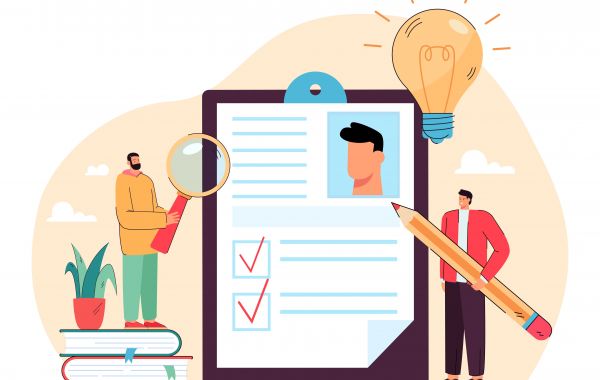Including hobbies and interests on a resume has long been a contention among career advisors and hiring managers. While some argue it's unprofessional, others believe that well-selected hobbies can significantly enhance candidates' appeal, offering a glimpse into their personality and potential cultural fit. This article explores the dos and don'ts of incorporating personal interests into your resume, ensuring they complement your professional qualifications rather than detract from them.
Understanding the Purpose
When considering whether to include hobbies and interests in your resume, relevance and value addition are key. These personal tidbits provide a more holistic view of who you are, potentially setting you apart from other candidates. A resume generator application can be handy, offering templates and suggestions on integrating personal interests to enhance your overall profile. It's essential, however, to distinguish between hobbies that demonstrate valuable skills or align with the company's culture and those that may be seen as filler or unprofessional. The goal is to thoughtfully select interests that underscore your uniqueness as a candidate and your potential to contribute to the workplace.
The Dos of Including Hobbies and Interests
When it comes to adding hobbies and interests to your resume, strategic selection is critical. Here are some guidelines to ensure this section works in your favor:
- Relevance to the Job: Choose hobbies that showcase skills or qualities relevant to the position you're applying for. For instance, a passion for blogging can highlight your writing skills and creativity, which is valuable for marketing or content creation roles.
- Evidence of Soft Skills: Hobbies can subtly demonstrate soft skills such as teamwork, leadership, or cultural awareness. Participation in team sports, volunteer work, or cultural clubs can speak volumes about your ability to collaborate, lead, or adapt.
- Brevity and Engagement: This section should be concise yet engaging. A few well-chosen interests can spark conversation in an interview, offering a unique avenue to connect with the interviewer.
- Alignment with Company Culture: Research the company's culture and values. If innovation and creativity are prized, hobbies like coding personal projects or engaging in creative arts can underscore your fit.
- Connect Hobbies to Professional Skills: If your hobby has helped you develop a skill relevant to your career, clarify that connection. For instance, if you're an avid blogger, highlight how this has honed your writing and content creation abilities.
- Mention Team Activities to Showcase Teamwork: Team sports or group hobbies like community theatre can demonstrate your ability to work collaboratively, an essential skill in almost any job.
- Include Hobbies That Promote Physical and Mental Well-being: Activities like yoga, meditation, or marathon running can indicate your commitment to personal well-being, suggesting resilience and a proactive approach to stress management.
The Don'ts of Including Hobbies and Interests
While hobbies can enrich your resume, certain pitfalls should be avoided:
- Common or Vague Interests: Generic hobbies like "reading" or "traveling" might not add much value unless you can tie them directly to job-relevant skills or unique experiences.
- Controversial or Polarizing Activities: Avoid hobbies that could be deemed controversial or divisive, as they might inadvertently alienate some reviewers.
- Overshadowing Professional Qualifications: Ensure hobbies don't detract from your professional achievements. This section should complement, not compete with, your work experience and skills.
- Too Personal or Irrelevant Details: Avoid hobbies that are overly personal or unrelated to the job. The focus should remain on interests that enhance your professional persona.
- Avoid Overly Generic Hobbies: Common hobbies like "watching TV" or "listening to music" might not add much unless you can tie them to specific, job-relevant skills or achievements.
- Beware of Hobbies That Might Suggest Risky Behavior: While exciting, high-risk activities could raise concerns about your judgment or safety awareness in specific professional contexts.
- Only Include Hobbies Unrelated to the Job With a Clear Purpose: While having diverse interests is excellent, it's best to leave them off if they don't add value to your candidacy for the specific role.
Examples of Effective Hobby Inclusions
Effectively including hobbies on your resume can make a significant difference. For example, if you're applying for a role in team management, mentioning your involvement in team sports can subtly highlight your leadership and teamwork skills. For creative positions, hobbies like photography or painting can demonstrate your artistic sensibility and eye for detail. Phrase these inclusions succinctly, such as "Captain of a local basketball team, leading to a 15% increase in team wins through strategic planning and team building."
Conclusion
Including hobbies and interests on your resume can be a strategic move, offering a fuller picture of yourself as a professional and individual. This section can enhance your appeal, showcasing your qualifications, personality, and potential cultural fit when done thoughtfully. In the competitive job-seeking landscape, every element of your resume should contribute to a compelling narrative about who you are, professionally and personally. Thoughtfully selected and strategically presented hobbies and interests can add a vibrant dimension to this narrative, offering insights into your character, values, and potential cultural fit within an organization.







